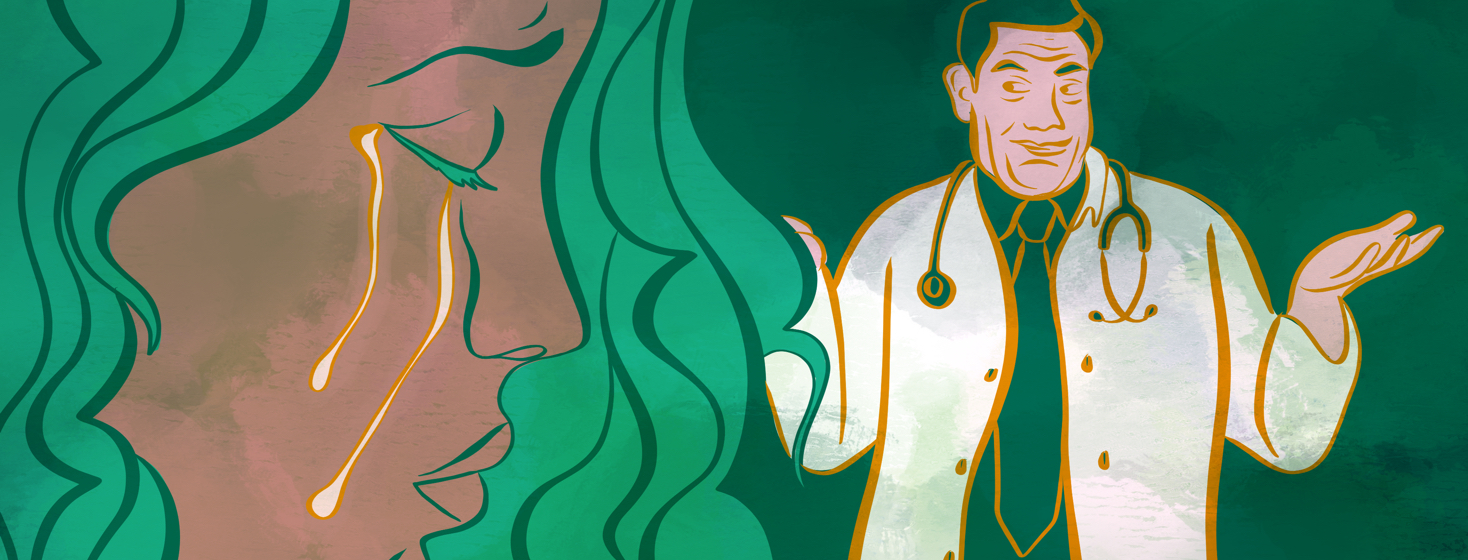Patient vs Doctor: With Endometriosis, Who's Really The Expert?
When it comes to experts of chronic illness or conditions, a common debate is who is the true expert— those living with the disease, or those diagnosing and treating those with the disease?
A 2020 study published in the Journal of Endometriosis and Pelvic Pain Disorders showed some interesting results. The study not only explored the perceptions and awareness of US doctors regarding endometriosis, it also explored the experiences of US women living with endometriosis.1
Doctors may not have all the answers
Doctors were given surveys about treating women with endometriosis or suspected endometriosis. Interviews were performed with women with endometriosis to reveal their personal experiences.
The study showed that only 11 percent of the 53 doctors who took the surveys recognized that endometriosis impacts 1 in 10 women. That means only 6 out of 53 got this right.1
The study takes a deeper dive into why this may be the case and explored the doctor’s perspective on endometriosis. Doctors may have limited training on endometriosis and women can present with complex symptoms. Doctors may also see endometriosis as a sort of last-resort diagnosis; Some only diagnose it if another health condition is ruled out, and only if endometriosis is confirmed by surgery.
This lack of knowledge leaves women living with endometriosis with delayed treatments and diagnoses. This makes increasing the pain, isolation, fatigue, and frustration common to those with endometriosis.
Patients' voices aren’t always heard
Twelve women completed the interview in the study. The results revealed various themes among those with endometriosis, including:
- Psychological and financial impacts
- Barriers navigating the healthcare system
- Limited treatment options
- Lack of self-advocacy
- Fertility concerns
- Decreased quality of life
The stories are all too familiar. Numerous women with endometriosis or suspected endometriosis reported not being heard by doctors about the chronic daily pain, fatigue, and general misery associated with the disease.1
After years of being pushed aside, dismissed, not being heard, these women become their own best advocates. Want to know the newest treatment options? Ask these women. What new research is out there about endometriosis? These women will tell you, even if they are not doctors or PhDs.
Finding the right expert
While it is fair to say that those with endometriosis know the ins and outs of living with the disease, it in no way means doctors are not masters in clinical diagnosis, treatment, and overall care of patients with endometriosis. Let’s face it, endometriosis is hard to recognize, diagnose, and treat. It can seem impossible to live with on a daily basis. This research verifies this, but women with endometriosis have been saying this for many years.
It is important to remember that there are many doctors who listen and do not push endometriosis patients aside. There are doctors out there who listen, communicate, educate, and advise using their expert knowledge and experience. They are out there, you just need to find them.
An expert may be both
The answer to this study’s question may be this: The best kind of expert is the expert team of a persistent warrior patient with endometriosis, along with a doctor who listens and has the drive to learn more about the disease.
If you haven’t found the right doctor yet, keep looking. In fact, you may need more than one doctor. Keep advocating and communicating your needs. After all, you know your body best. Your expert knowledge and experience of your body, coupled with your doctor’s medical expertise, may be the best way to fight endometriosis.

Join the conversation